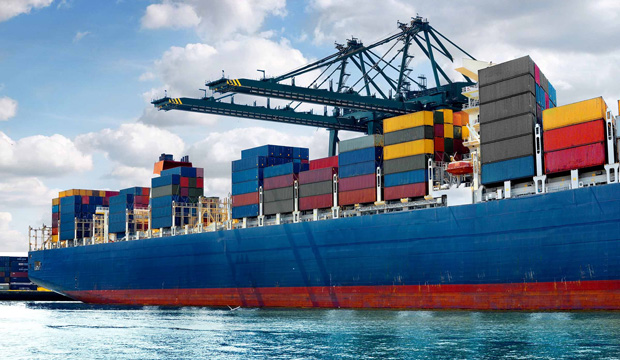December, 8, 2017

~ An evidence-based article amidst public confusion for intelligent readers
By Chathura Subasinghe
The Shipping industry in Sri Lanka is already liberalized.
All aspects of the Shipping Industry except for Agency is liberalized. This includes: terminals, warehouse and depot infrastructure, ancillary service infrastructure etc. which constitute a maritime hub where foreign entities can have 100% ownership. Despite this, we are yet to see foreign investments taking place in these sectors. The only restriction is the 40% restriction on foreigners investing in shipping agency business which doesn’t require substantial capital.
All Major Shipping Lines already present in Sri Lanka
The port of Colombo is a destination for all major lines. There is also no restriction preventing shipping lines from investing in all areas of shipping industry in srilanka such as container terminals, warehouses, depots etc. The intention that major shipping lines will base their operations in Sri Lanka as result of this policy change is incorrect as even now they can have their fully owned HQ or regional offices.
PORT OF Colombo at full capacity
Port of Colombo is currently operating at full capacity especially for deep water terminals so even in the unlikely event that more volume is brought to Sri Lanka this cannot be handled with the port’s current infrastructure. It is clear that the most important move for Sri Lankan maritime industry is expanding the deep water terminal capacity in the port of Colombo.
What is required for a maritime Hub?
There are many other key elements which are more important in developing Sri Lanka as a maritime hub such as building port capacity, addressing other key issues such as developing ancillary services, ease of doing business , electronic transactions, customs procedures, promoting flag registry , legal infrastructure etc.
Liberalizing has nothing to do with a Lines call to port
Control of the shareholding/profits of the shipping agency will have no bearing whatsoever in deciding to call a port. There are many factors that determine a line’s decision to call a port. Availability of port and terminal capacity, port tariff, ease of doing business, cargo volumes, and schedule integrity, on arrival berthing, productivity, ancillary services are few key elements.
Besides Colombo is a relatively expensive port when comparing the Port Handling charges in the region and main hubs located in Southeast & West Asia. The decision to abolish THC has also prompted vessel operators to display subdued interest in the Colombo Port resulting in the exploration of other options. Furthermore, this decision would also hamper Sri Lanka’s prospects of maintaining itself as a maritime hub.
Liberalizing Ship Agency will not have any impact on FDI
The reason for holding back in investment in facilities and the maritime hub services is the lack of consistent policy, no attractive benefits and bureaucracy, red tape and delays in doing business. Furthermore, Shipping agency doesn’t require huge investments hence 100% ownership is not a precursor for a line to invest on infrastructure in Sri Lanka.
All profits of shipping agency will be repatriated and not retained and reinvested within the country as being done at present by existing local agents. Shipping lines will charge all owners costs to the agency and make it a cost center depriving the government of tax revenue. SME sector entrepreneurs will lose their livelihood. There are currently 130 shipping agents (not an oligopoly although there are market leaders as in any industry) handling 35000 Container vessels 6000 non container vessels employing 12,000 people who have reinvested the earning in the local economy. Foreigners from India, Pakistan, Bangladesh and Singapore will set up small agency offices for casual caller vessels and reduce business available to local SME agents. This will have an adverse effect on our Economy
Freight rates are determined by Shipping lines based on market forces and not by liberalizing ownership in shipping agencies.
Freight rates are mainly market driven and determined primarily by ship owners’ vessel operating costs such as bunkers, crew, finance, port charges, insurance which are the largest cost elements for ship owners. The agency cost is an insignificant component of a shipping line’s cost structure.
Liberalization will discourage local entrepreneurship and building strong local shipping companies
Liberalization of this service sector without any form of investment is detrimental to local entrepreneurship and local businesses. This move also disregards the hundreds of local companies who have contributed immensely to the development of the maritime sector in this country over the years especially impacting the SME’s.
There would be no benefit to importers and exporters by way of cost savings
Every port in the world operates with shipping agents and there is naturally a cost associated with performing the specific functions of an agent. In fact, Shipping lines having 100% owned agencies will apply charges which are levied globally (eg.THC) and also put pressure on the port tariff to reduce its rates.
We need to do what is best for our economy
Countries need to do what is best for their economies depending on their comparative advantage and local resources. Sri Lanka has a very mature local shipping industry. We were among the earliest nations to liberalize shipping and convert to an open economy, to develop our ports and terminals. Local entrepreneurs set up and developed all other infrastructure to support shipping and logistics activities. There are many industries in Sri Lanka which has restrictions in foreign ownership such as retail business, mining and tour operators as the government needs to adopt policies which are best suited for Sri Lanka and not cut and paste policies which have worked for purely trading economies such as Singapore.
Video Story